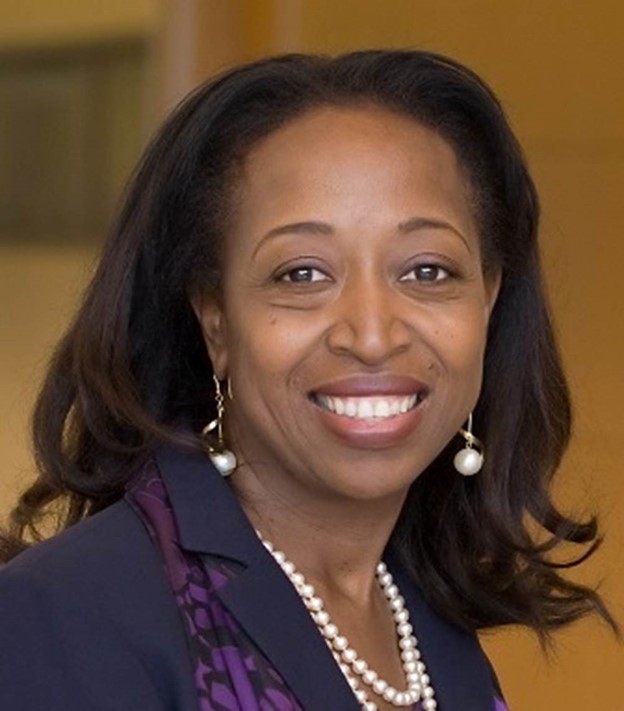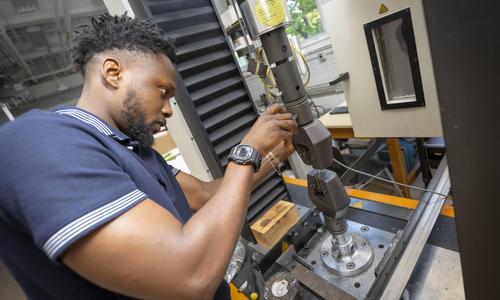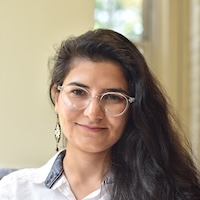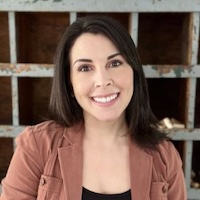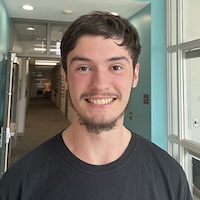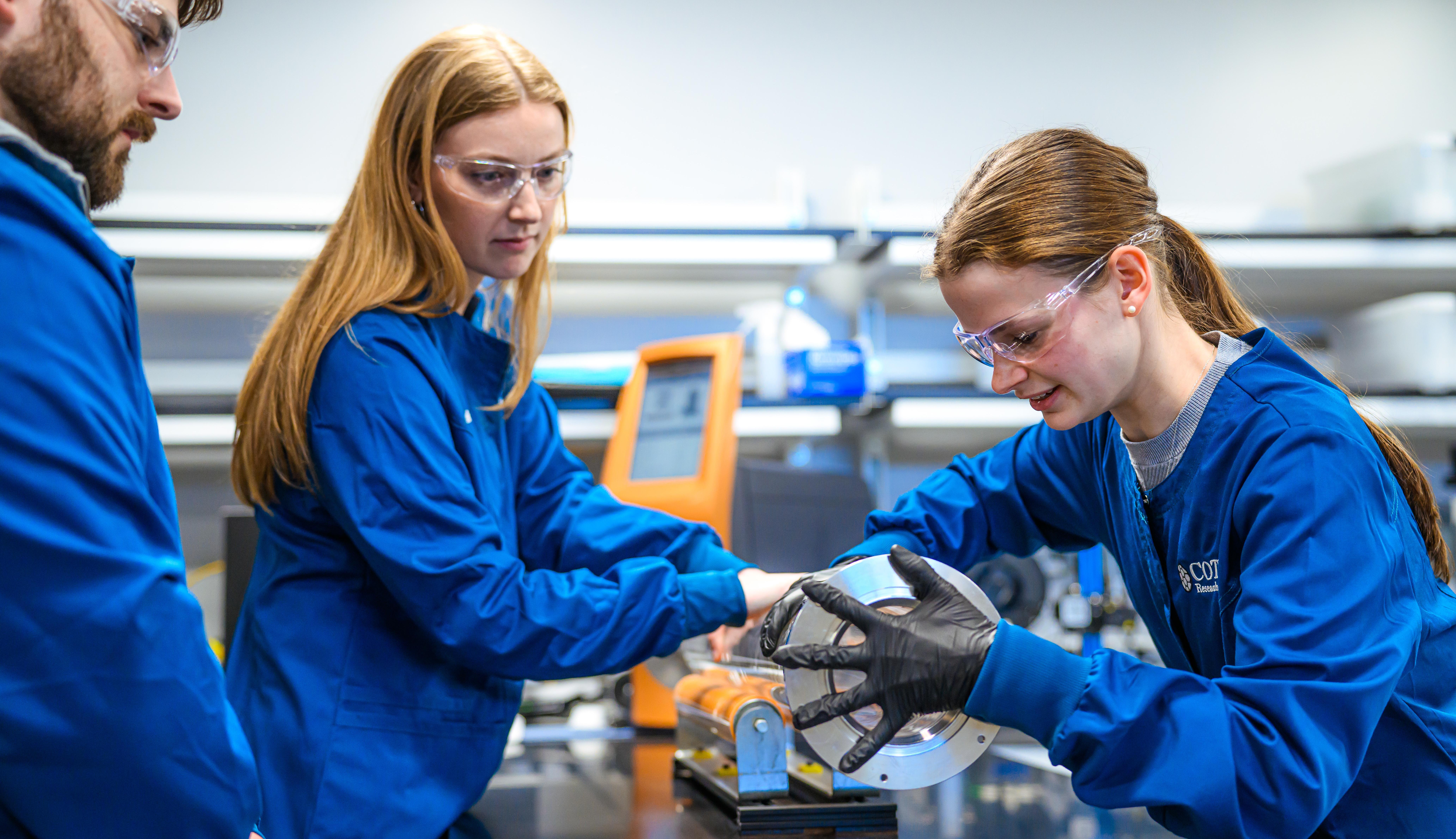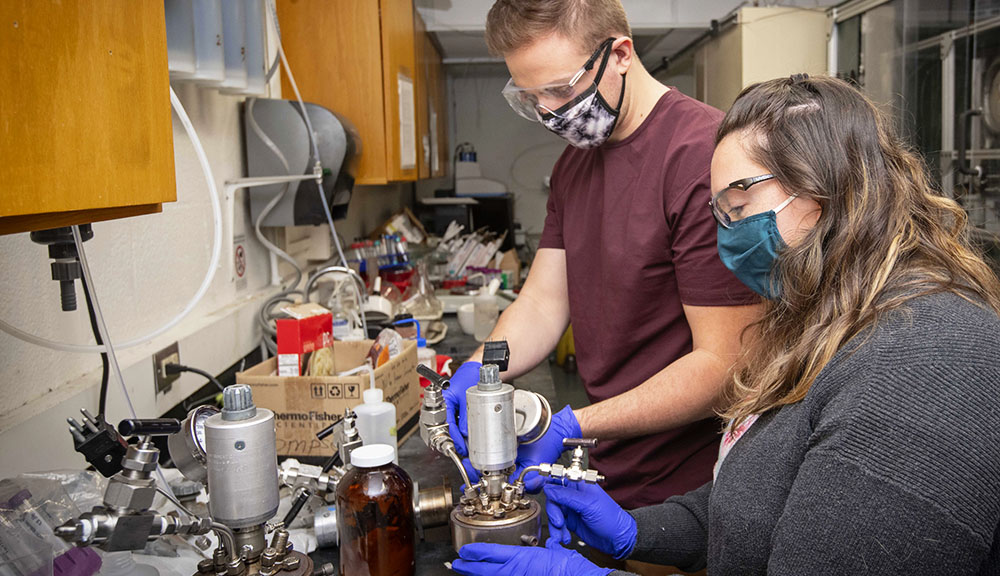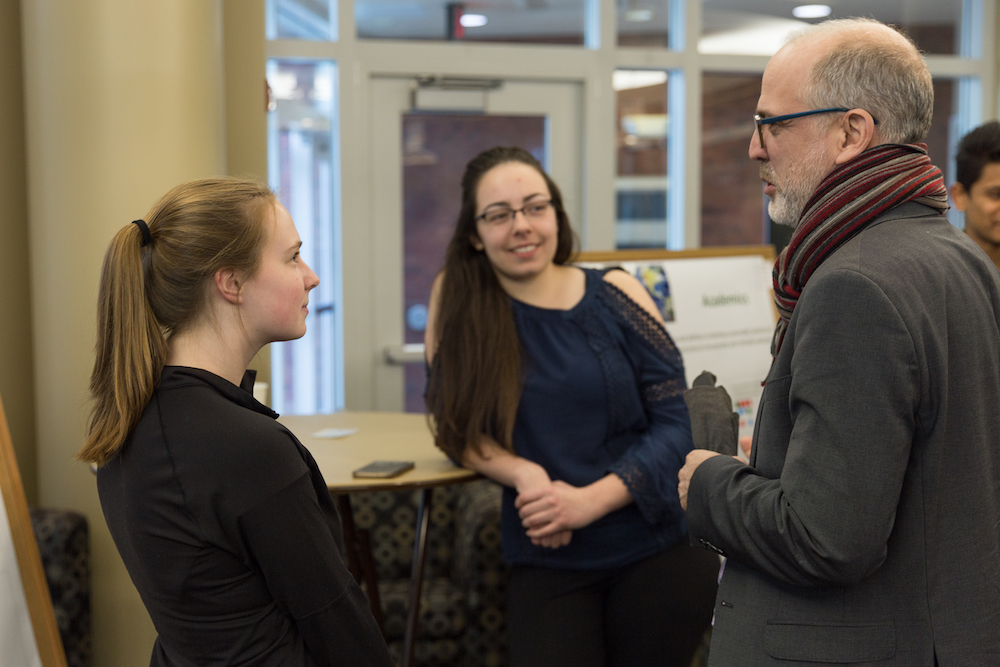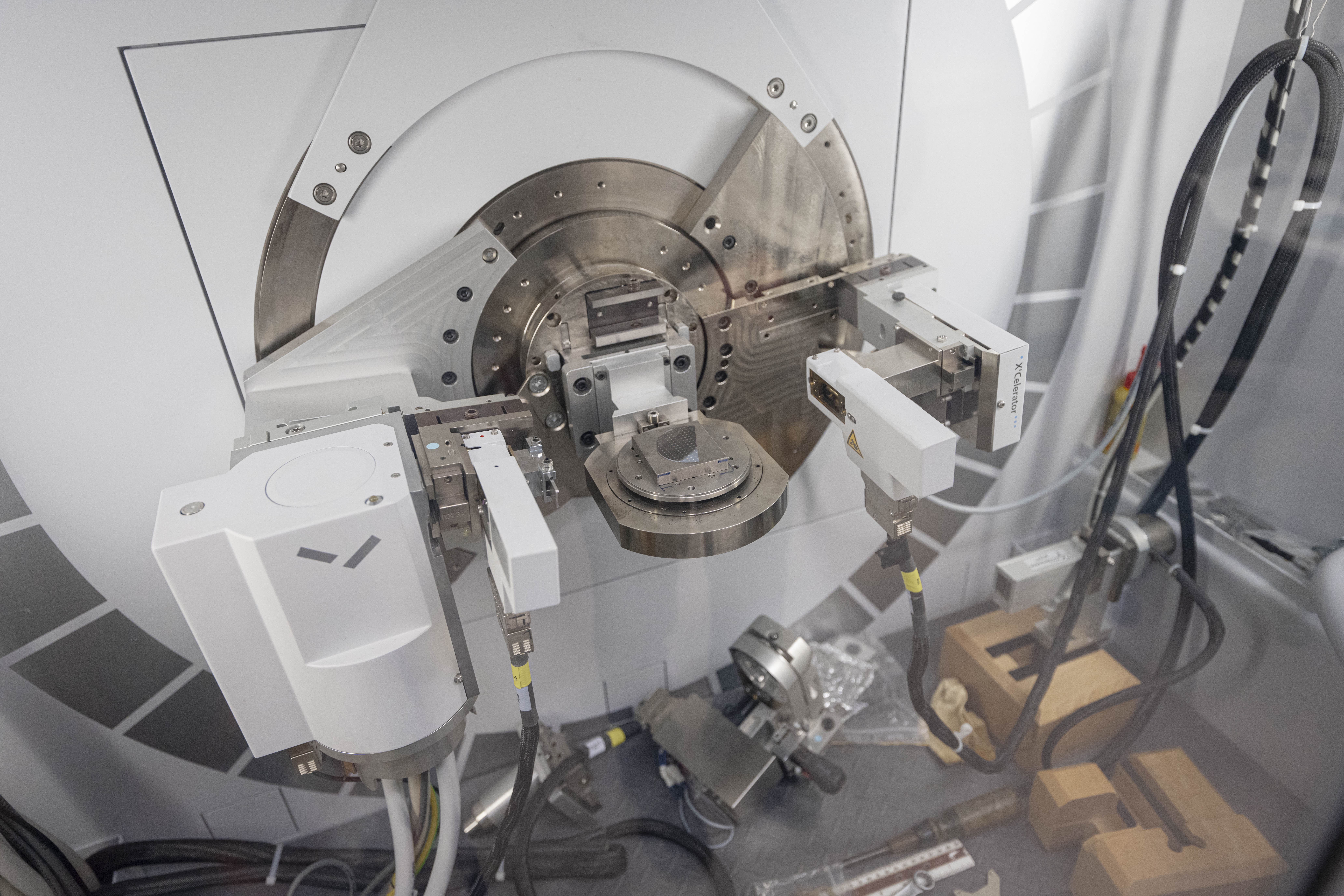When Enis Agyeman Boateng ’24 (MS) was growing up, there was a huge garbage dump near where he lived in Ashaiman, Ghana, on the outskirts of Accra. Plastic and other debris clogged waterways and caused flooding that dislocated people from their homes when it rained. Watching the trash heap grow bigger every year upset Boateng. But it also set him on a path that led to WPI, where he is now pursuing a PhD in Sustainable Development Engineering so that he can make a real difference for the people of his home country—and for the planet.
Building upon his undergraduate materials engineering studies and his master’s degree in Science and Technology for Innovation in Global Development, Boateng is using trash that would normally accumulate in landfills to create a sustainable, affordable, and effective roofing material.
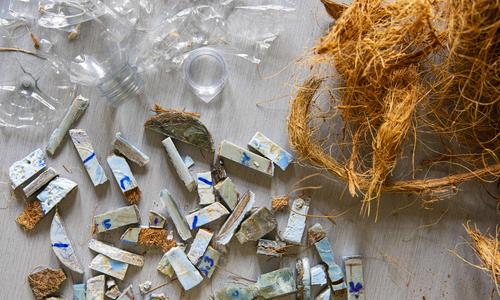
By combining plastic waste and coconut husk fibers, Boateng is creating a new roofing material, shown as test pieces here.
“I want to get waste materials out of the environment and repurpose them into something valuable for people,” says Boateng, who is in the proof-of-concept stage in his research to create a composite material from recycled plastic and coconut husk fibers. (In addition to manufactured trash, coconut husks account for a large portion of solid waste in Ghana.) “Everything that I’m doing is to better the human condition.”
Like so many people at WPI, Boateng and his advisors, Professor Robert Krueger and Associate Professor Danielle Cote, are committed to harnessing innovation for social and environmental good. These are the very values that prompted university leaders to create the Department of Social Science and Policy Studies (SSPS) in 1974.
The idea is that by weaving social sciences into the fabric of WPI’s curriculum, students not only learn STEM skills but also gain an understanding of human needs. Along the way, they become holistic problem solvers capable of creating true solutions meant to outlast the latest technical innovations. Combining social science and STEM in this way was truly groundbreaking when SSPS was founded. Today the approach is much more common—but no less effective or relevant.
“As we celebrate the 50th anniversary of SSPS, the world is literally on fire as communities everywhere deal with environmental disasters, political unrest, and social upheaval,” says Jean King, the Peterson Family Dean of Arts & Sciences. “This makes WPI’s commitment to teaching tomorrow’s STEM professionals how to responsibly leverage science and technology for the benefit of both people and planet more valuable and necessary than ever.”

